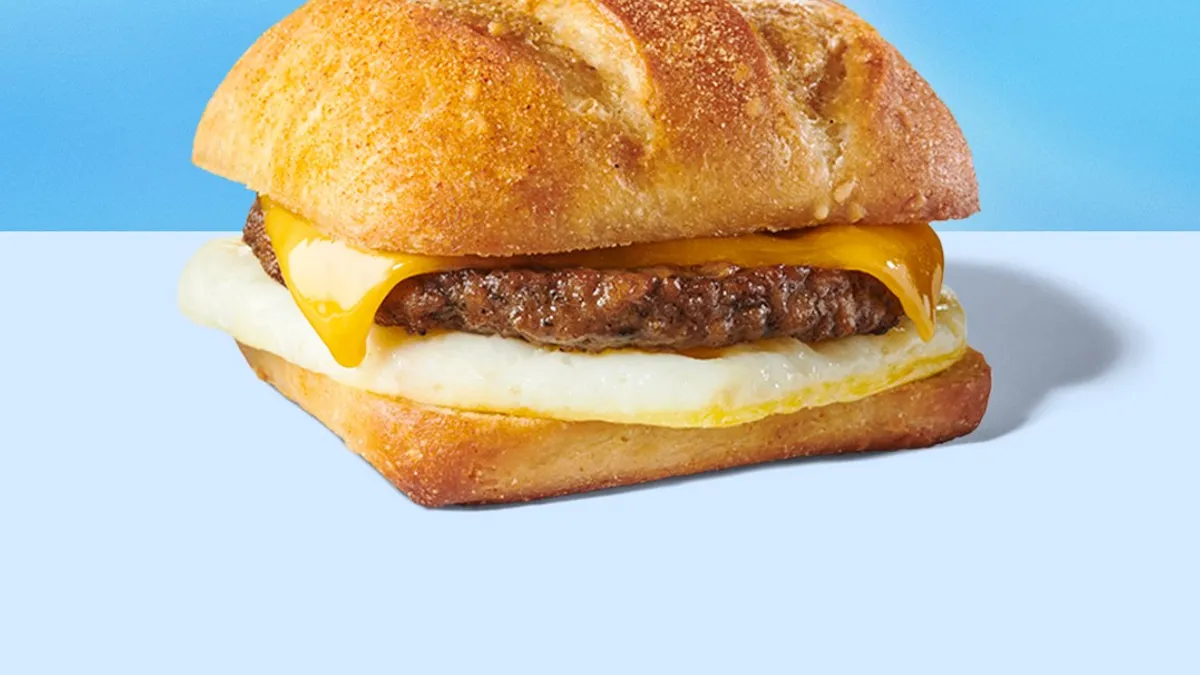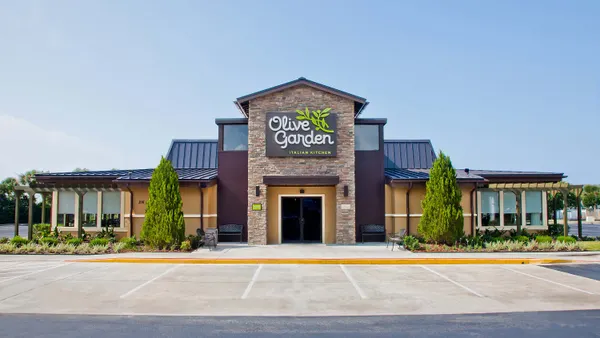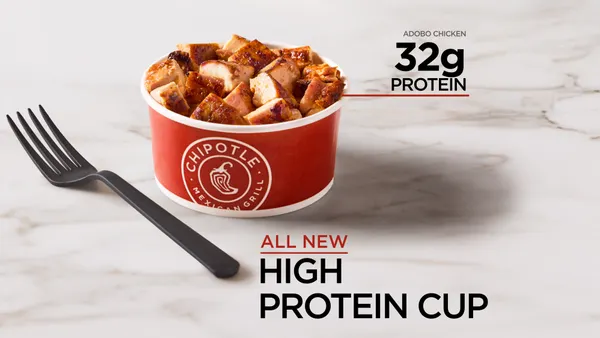Dive Brief:
- During Starbucks' recent Q1 earnings call, CEO Kevin Johnson disclosed that the company has turned a location near Seattle into a test site for a 100% plant-based menu, replacing the chain’s typical animal proteins with plant-based food.
- Starbucks develops products through its R&D lab and then tests those menu items at the location. A store in Issaquah, Washington, which isn't far outside of Seattle, trialed two flavors of Myoko's Creamery's vegan cheese in September, according to Live Kindly. It's possible that this is also the plant-based test store Johnson is referring to.
- In June, Starbucks debuted an Impossible breakfast sandwich, made with plant-based sausage from Impossible Foods. The company has also added plant-based milk alternatives in recent years, such as soy, coconut, almond and, most recently, oat milk. Oat milk will be available in all stores beginning this spring after a test in 1,300 stores in the Midwest, Yahoo News reports.
Dive Insight:
During Starbucks' Impossible breakfast sandwich launch, Impossible Foods CEO and founder Patrick Brown called the chain's interest in expanding plant-based menu items "a new benchmark for large corporations." With its massive scale of about 15,000 U.S. locations, Starbucks has the chance to bring plant-based food options into the mainstream, just as it did with alternative milks.
The plant-based trend is catching fire at other major QSRs, too. Burger King, Dunkin, KFC, Subway and Pizza Hut have all launched plant-based offerings, creating a fast food environment where having a plant-based option is quickly becoming the rule rather than the exception. If McDonald's expands its new McPlant meat alternative test from Sweden and Denmark to the U.S., this will likely drive further momentum.
In 2019, the Plant Based Foods Association reported that retail sales of plant-based foods grew more than 11%. In mid-March 2020, plant-based food retail sales were up 90% compared to 2019, reflecting intensifying consumer demand for plant-based fare that restaurants can take advantage of.
In other words, Starbucks is striking this consumer trend while the iron is hot — while simultaneously prioritizing the reduction of its carbon footprint. These plant-based menu additions are part of the company's recently announced sustainability commitment, which includes becoming a "resource positive" company. The company notes animal protein is the highest contributor to its carbon and water footprints in the food category.
"If I were to say what is probably the most dominant shift in consumer behavior, [it] is this whole shift to plant-based. And that is a shift both in beverage and in food," Johnson said during Starbucks' Q1 call.









